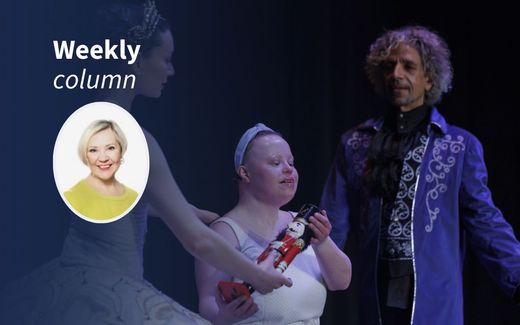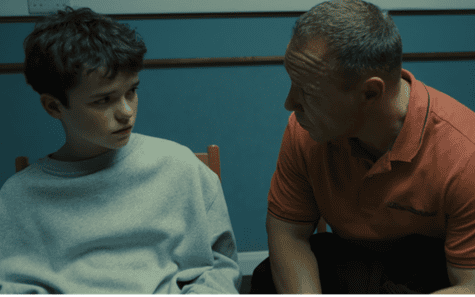Stop harming your “neurodivergent” friends with your empathy!

On social media, more and more people identify themselves as neurodivergent. On the picture, a youngster creates a social media video. Photo ANP, Ramon van Flymen
Christian Life
Let's be honest, we all have something “special” as in a tad odd. Nowadays, people with neurodivergent traits are more visible than ever. But we are more than this speciality: we are human beings created by God Himself. Julia Boehme had to discover that.
The other day, I was watching an overall charming YouTube video about cleaning routines. However, the host kept referring to her ADHD. The video was overshadowed by the constant “As someone with ADHD, it is difficult” or “As a neurodivergent person, I struggle”.
She repeatedly referred to her diagnosis as her defining feature, over other displayed traits such as being a mum, homemaker or even a lover of vintage things. Why identify as the girl who struggles to keep her house clean, when you could be the girl who overcomes that trouble and does it anyway!
Online
Online the “I am my mental illness” discourse is flourishing. It isn’t all that new. Even if I never used Tumblr, I knew many "tumblristas" back in the day. However, nowadays, these ideas moved from the Tumblr fringes to mainstream TikTok and social media.
Imagine everything from quirky videos on typical challenges to reels with “illness aesthetics” over moody music to the frankly disturbing “your mental illness based on your zodiac sign” content.
It is easy to roll our eyes and laugh at such claims, especially the last one. But if I had the amount of engagement this content has on my articles, my editor would be one happy man. We are speaking of hundreds of thousands of likes. The problem with that is that the over-identification of the aforementioned cleaning video turns into a glorification of real or imagined disorders.
Offline
A step to avoid this kind of content is getting yourself or your friend off TikTok, but it doesn’t end there. This is not exclusively an online phenomenon. I have been the recipient of the “as a neurodivergent” phrase many times from friends and strangers alike. On YouTube, I can turn the video off. In real life, my answers to this claim have differed between a hummed “Mmhhhmm” to change the topic or to fully enable the behaviour by agreeing! Neither reaction was beneficial to my friends. One is lazy and both are neglectful.
Allowing unguarded empathy to govern our interactions with struggling friends is potentially harmful.
Compassion with others, especially if they are in a difficult situation, is valued, and rightly so. After all, we are called to love our neighbours.
We should lend a hand or ear when appropriate and practice kindness to our fellow men. However, allowing unguarded empathy to govern our interactions with struggling friends is potentially harmful. A common way to do this is to allow them to identify with their disorder.
Happy
Speaking for myself, I don’t want my deficiencies to define me, and I don’t wish them on anyone.
I want those I love to succeed and be happy. Why indirectly encourage a friend to limit themselves to identifying as their illness? They are created in the likeness of God, not a diagnosis! Not challenging this can at best allow poor behaviour to slide. At worst, it might even be dangerous, despite our words feeling nice at the time. Luckily, there is a way to mend this accidental harm.
The compassionate response is not to be nice, but kind. An example from my life: what to do when a depressed friend says she's just tired and needs more rest? Agreeing with her feels nice short term, but is hindering her recovery. Trust me, encouraging this is disastrous. I have been the depressed girl at the receiving end of “all you need is rest” and the frustrating “get off that bed and take a walk” advice. I know which one was preferable at the moment and what advice helped me get healthy!
Do we wish to contribute to binding someone to permanent sadness to spare that person quick pain?
Telling the truth and giving hard love is uncomfortable. However, our response will help her spiral in either direction. Do we wish to contribute to binding her to permanent sadness to spare her quick pain?
Get up
The metaphor I was always told to excuse bowing down to mental illness was “We don’t ask anyone with a broken leg to walk on it”. At first, this sounds reasonable and plays on our empathy.
However, we don’t ask our friends to constantly stay indoors with their broken legs. We encourage them to have fun within the confounds of their ailment. Starting in a wheelchair, then encouraging them to walk on crutches and at last holding their hands as they practice rehabilitating the recovering leg.
Dressing style
Introducing oneself with a diagnosis might be a quirk standing between advancement or a potential suitor. A silly example of a similar thing happened in my early teens - my terrible dressing style cost me a cool networking opportunity. The experience was humiliating as I had been excited, but I grew past it. I shudder to imagine what would have happened if those identifiers carried into adulthood! Pointing such things out is unpleasant, but can improve life quality easily.
The depression scenario discussed earlier enables sustained illness, and helps keep our loved ones from experiencing their best life. Why does the “go outside, take a walk and see your friends” help long-term? It breaks the self-imposed isolation and forces your body to relearn to handle everyday stressors. Staying in bed even more teaches the body that you are weak and your mind that you indeed are alone.
Whatever illness, the sufferer deserves our compassion.
On a more disastrous note, allowing or providing affirmative care allows a friend to potentially mutilate and sterilise themselves! God forgive me that I have given so-called "gender-affirming care" advice, thinking what I did was kind and right.
Discomfort
Whatever illness, the sufferer deserves our compassion and I call not for us to be needlessly cruel. What I said to my ill friends before was bad, misguided actions committed with care. I strive to keep that core of loving care still as I encourage healing. A mental disorder is a cross to bear, not an aesthetic or what defines someone most.
So yes, we should treat our friends and ourselves by encouraging them to heal and face their fears! No matter if it is cleaning with ADHD, going outside with depression or the discomfort of one's sex with gender dysphoria. You get it, or whatever hardship that plagues us. Lead with honesty and empathy.
Brave
Telling our friend it is time to practice walking on the healing leg is painful. We fear rejection and anger from them, often justly so. Nevertheless, the few people telling me to get out of my comfort zone were right, and I got better, no matter how cruel it felt at the moment.
So let us vow to be brave. While we help those we love, remind them they can do it despite their diagnosis. Help turn focus outside the confines of ailment.
The YouTuber struggled to keep her house clean and now shares advice on how she solved it to inspire others to do the same. That is a much more compelling story compared to “I have ADHD”. After all, we are never just a diagnosis, but if we follow His light we can become the child God we are created to be.
Related Articles











